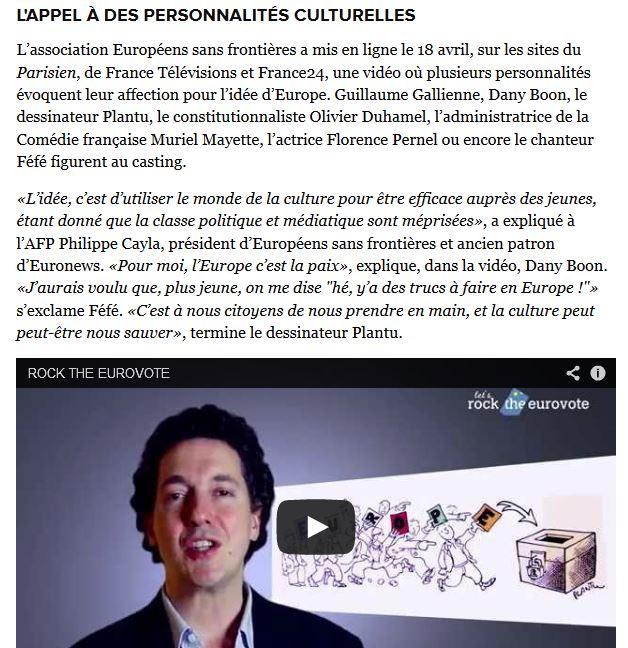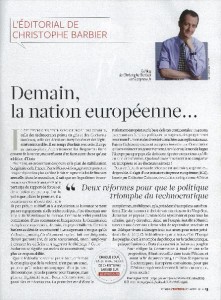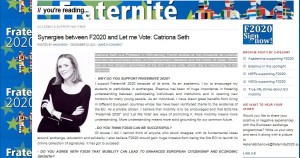This is an English translation of an article by Philippe Cayla and Catherine Colonna published in the French newspaper Le Monde on 03/04/2012
Europeans Without Borders (Europeens Sans Frontieres)
Author: Philippe Cayla & Catherine Colonna
Translation: Letmevote
Published in: Le Monde 03/04/2012
How can we bounce back in a Europe which is being rocked on all sides, where good news is
scarce, economic perspectives remain uncertain, the capacity for boldness and innovation on the decline, and the temptation to shrink back is lurking in the wings?
Firstly, by giving a voice to the people, in the true sense of the word. It is time to allow them to express themselves: i.e. in a democracy, to participate. Let us take advantage of this possibility, opened up in the Lisbon treaty by the ‘European citizens’ initiatives’.
Europe cannot do everything at state and institutional level. Of course negotiations, rules, mechanisms and governance are all necessary, but they are often incomprehensible for citizens. We will need new common policies and investments for growth. Above all we will need to bring the men and women who make up our Europe closer together; to make Europe in our hearts, not just in programmes.
Since the beginning of the construction of Europe , Europeans have no longer been foreigners to each other: they are our neighbours, our cousins, our family. We share the same history, the same democratic and humanist values, the same references and, we must recognise it, the same destiny. Yet too many obstacles hinder the meeting of peoples.
One among the thousand of these obstacles is the most political one. Nowadays, a European residing in another European country takes part in its economic, social and cultural life and pays taxes there, but is only allowed to vote in local and European elections, not in any others. He is not a citizen equal to the others. Let us start by granting full and complete voting rights to all Europeans. Let us do it now, without delay.
Every European citizen must be allowed to express him or herself in the elections wherever he lives in Europe and without renouncing his nationality and his roots: a British woman living in France must be able to vote there, just like a Frenchman living in Hamburg or a German in Madrid. His or her future is being decided, just like ours.
To give European citizens the right to vote in all elections, be they local, regional, national or European, would be to give each European the feeling of a common destiny, of being at home wherever he or she is within the European Union. It would also be a way to do make up for a grave deficiency by breathing a little more soul into Europe. It would be a way of giving European citizenship its full meaning: it must not be an additional, bargain citizenship, but one which gives pride and rights.
There is a new way of making things happen: as of April 1 st this year, European citizens’ initiatives can invite the Commission to take measures in order to strengthen the Union. They need to collect a million signatures. The ‘Européens sans frontières’ (Europeans without borders) association unites Europeans of good will desirous to promote fuller European citizenship. To this end it has launched the ‘Let me vote!’ initiative. To make Europeans into full citizens: who could oppose such a great idea? If you want to help it along, come and join us on our site: letmevote.eu
europeenssansfrontieres.eu








